Share This:
April 27, 2018 | Theatre,
Recording Boston’s Migration Stories
The Great Migration started just before the United States entered the first World War, and extended into the 1970s–but what part did Boston play in this massive movement of African Americans to the north? During the first half of the twentieth century, Boston’s small but vocal African American population began to expand—by 13.3% between 1910 and 1940 according to U.S. census data. Immigrants from the West Indies and migrants from the south and west, including figures like Malcolm X, came to Boston for the hopes of a better life.
Stories from those who lived through the Great Migration are limited, as little was done to record their journeys and struggles during their migration to the north. As the beginning of the Great Migration is over a century gone, many of the individual’s stories have been lost to time, but the recording and preservation of African American migrant’s voices has become the goal of many academics and Boston Community members alike. While lost to history textbooks, the influence of The Great Migration is embedded in street names, culture and has become an important thread in our history.
The Warmth of Other Suns
Boston University journalism professor Isabel Wilkerson penned The Warmth of Other Suns in an attempt to make permanent the stories of migrants in the Great Migration while they could still share them. Originally from Washington D.C., Wilkerson’s mother migrated north during the Great Migration, where she met and married Wilkerson’s father.
Stonehill College Interviews
In 2015, Professor Maureen Boyle’s students at Stonehill College interviewed parishioners of the Messiah Baptist Church in Brockton to record their experiences during the Great Migration. With Step Afrika’s Migration coming to ArtsEmerson on May 3rd, take a look at how Boston area residents experienced the Great Migration.
Ramona Jackson
Jackson lived in Brockton during the 1960s, and regularly drove her sons to West Virginia to visit family. She graduated from a nursing program in West Virginia before moving to Boston with her husband in 1955 to work at the Boston Medical Center. In Boston she faced a new, unofficial kind of segregation, different from the kind she had experienced in West Virginia. During her time living in Boston, Jackson had a patient ask to be treated by a white nurse instead, and her daughter-in-law was asked to find new housing by her white college roommate. Jackson’s son, Miles, continued the fight against racism in Boston as secretary of Brockton’s NAACP branch.
Charlie Carter
Carter moved from the south in 1971 in search of better jobs with better pay. Born in Mississippi and having worked 48 hours a week as a cotton picker as a child, Carter and his brother moved north with the intention of settling in Philadelphia, but instead settled in Brockton. There Carter got a job with A & D Candy, and started taking classes at Roxbury Community College, the first non-segregated educational institution he had ever attended.
“I had tough but good experiences. Everything helped me come closer to my family and that’s what’s important.”
Josephine Durnell
Born in Louisiana in the 1940s, Durnell moved to Minneapolis to attend college where she was the only African American student. Her Lutheran church became her weekly refuge from the academically and socially challenging environment of Augsburg College. In the late ‘60s she moved to Massachusetts, teaching and volunteering in Boston since.
“[The Church] makes me feel like we’re fighting against racism.”
These are only some of the stories of the Great Migration from Boston area residents. More can be found at http://brocktonsgreatmigration.blogspot.com/, and more stories of the Great Migration can be read about in Isabel Wilkerson’s The Warmth of Other Suns. To learn more about The Great Migration, please visit our timeline, art and culture post and be sure to come see The Migration: Reflections on Jacob Lawrence – May 3 – 6.






Leave a Reply